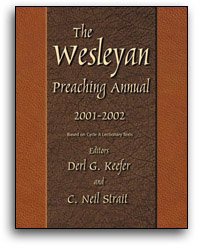SermonStudio
Fourth Sunday Of Easter
Preaching
THE WESLEYAN PREACHING ANNUAL 2001--2002
WORSHIP HELPS
CALL TO WORSHIP
Leader: Give thanks and praise to the Lord; call on His name.
Speaker 1: Tell everyone you meet what marvelous things He has done!
Choir: Sing Him songs; blast the air with hymns.
Choir Director: Translate His message into gospel music!
Speaker 2: Honor His holy habitat with hallelujahs.
Leader: Live a worthy life before Him.
Speaker 1: Keep your eyes and ears open for Almighty God.
Speaker 2: Be on the lookout for signs of His presence.
CALL TO WORSHIP
Leader: Give thanks and praise to the Lord; call on His name.
Speaker 1: Tell everyone you meet what marvelous things He has done!
Choir: Sing Him songs; blast the air with hymns.
Choir Director: Translate His message into gospel music!
Speaker 2: Honor His holy habitat with hallelujahs.
Leader: Live a worthy life before Him.
Speaker 1: Keep your eyes and ears open for Almighty God.
Speaker 2: Be on the lookout for signs of His presence.


